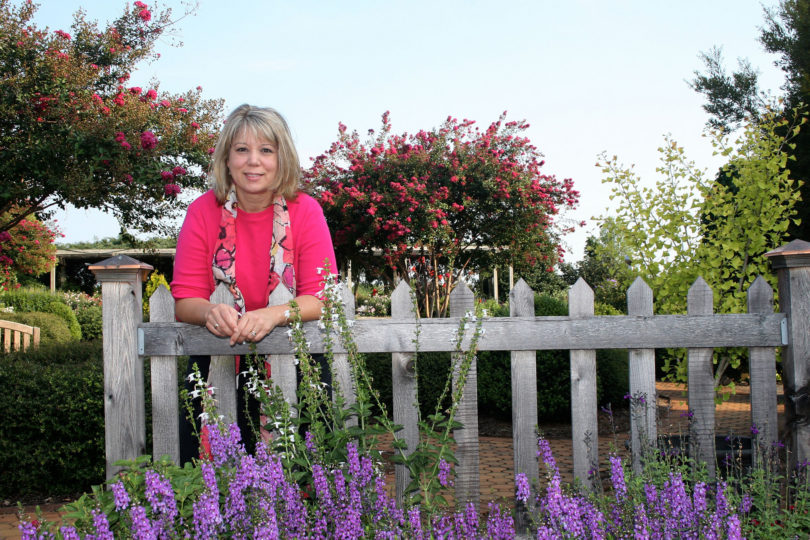When Krissy Slagle signed up to take classes with the master gardener program more than a dozen years ago, she wanted to learn everything she could about gardening. Little did she know it would turn into a career.
Now the assistant coordinator for the Georgia Master Gardener Extension Volunteer Program, Slagle got her start learning all about plant selection and adding lime to acidic Georgia soil in the three-month program.
“When we bought our first house, I started being interested in gardening. I heard about the master gardener program and thought ‘No, I could never do that. You have to know too much,’ ” she said. “Most of what I learned before I did that, I taught myself. So I’d put my son in a stroller and we’d walk around the nurseries, read the plant labels. And I’d read and read and read.”
She started the training classes when her son, Jack (now a senior at UGA majoring in international affairs and sociology), started school, and has stuck with it ever since.
“You don’t have to know a lot about gardening to get in. That’s a myth. It’s nice if you do. We’re really looking for people who can volunteer. We’re not looking for horticultural geniuses,” she said. “We’ll teach you.”
The program covers better gardening techniques, ways to reduce the amount of pesticides used and ways to reduce the amount of fertilizers that go into streams, said Slagle.
She put her newfound knowledge to use, and after completing the program she took a position in Fayette County’s Extension office answering the phones and handling local homeowners’ questions about turf diseases and plant problems.
After two years, she moved to UGA’s Griffin Campus to assume her current position. Now she oversees all the training materials for the classes offered statewide. She calls her job a “Girl Friday” kind of gig. She does the administrative tasks, runs the office and helps coordinate the state’s
2,500 volunteer master gardeners.
This summer she updated the 700-page textbook for the course. With the current emphasis on sustainability, the book has added chapters on rain gardens, organic gardening and a new ecologically focused chapter on soil.
Slagle also compiles and distributes Snippits, a weekly newsletter that goes out to master gardeners around the state. The publication includes garden happenings from around the state from garden tours to wildflower walks and meetings to farmer’s markets.
When she’s not in her office, she’s probably gardening. She grows tomatoes, peppers and squash, kale, collards and beets. She has perennials, annuals, hydrangeas and Japanese maples.
Her No. 1 tip for new vegetable gardeners is raised beds. She has four of them in the garden at her house. In north Georgia much of the topsoil washes away or is removed during construction. Raised beds, especially ones with sides, help keep water and nutrients in and get the roots up out of that clay soil. This summer, she harvested an abundance of cucumbers—80 a week from her four plants.
She’s written gardening articles for the Cooperative Extension on everything from growing flowers straight from a potting soil bag to fall chores for spring gardens. But her gardening highlight hasn’t been about the plants. She says it’s the master gardeners she has met from all around the state who share their knowledge and love of gardening. “The projects they do are amazing and the time they spend helping in the offices is such a huge help to Extension,” she said. “I’ve met the best people here at my job.”
“Krissy Slagle is a ‘natural’ for her position with the Georgia Master Gardener Program,” said Wayne Gardner, coordinator of the UGA Research and Education Garden. “She is an avid gardener who is always testing out new plants, planting arrangements and methods of producing better and more appealing products.”





